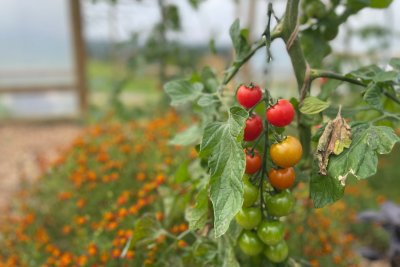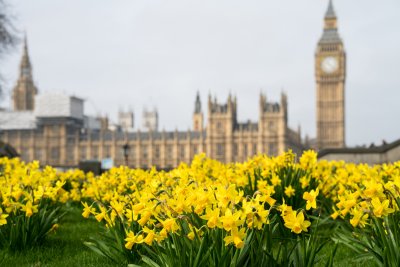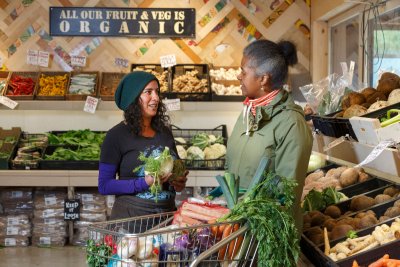News • Sustainable Farming Campaign
Tesco boss says changes to food system cannot be led by the market
Sustain responds to the chief executive of Tesco Dave Lewis calling for more and better regulation on food safety, public health, food poverty, animal welfare and farm antibiotic use. He stresses that such pivotal issues cannot be left to the market.

Dave Lewis, chief executive of Tesco, has written an article for the Financial Times (Paywall: The UK's food strategy cannot be left to the market) calling on food safety, animal welfare and antibiotic use standards to be maintained through the UK’s trade negotiations. He made it clear that vital standards such as these should not be left to the market. He was also clear that food needed to be affordable saying “a food system that doesn’t protect our most vulnerable doesn’t work for the nation”.
He pointed to the Government’s promised National Food Strategy as being the place to “take us closer to a more resilient, sustainable and equitable system — one capable of reducing the NHS burden, stimulating growth and serving those least able to afford food”. He argued that although the food industry had a critical part to play in “evolving ranges, innovating and engaging customers”, what he described as “heavy duty” change could not be left to the market. He pointed to the need for the “right regulatory context" and that "access to capital and incentives to innovate are critical".
Chief executive of the Sustain alliance Kath Dalmeny responded:
“It is refreshing to hear such an influential food retailer calling for sensible regulation on pivotal issues for our health and our planet. Tesco's boss rightly calls on the Government to take oversight of our food system and manage these issues through regulation, not market forces. The coronavirus pandemic has caused many more people to go hungry and exposed serious flaws in our supply chains. Those from low income households are disproportionately reliant on highly processed food of low nutritional value, which seriously affect their health. This winter we are facing the potential of a second wave of coronavirus, multiple job losses and mass disruption to our food supply from Brexit. We simply can’t expect the market to manage all this.“
Ruth Westcott, co-ordinator for Sustain's work on the climate and nature emergency, said:
“We need a more sustainable food system if we are to have any hope of tackling climate change, or indeed feeding ourselves in the future. We're looking forward to seeing the National Food Strategy include measures to make our diets more sustainable, but Tesco can show Government what leadership looks like now by taking a 'less but better' approach to the meat in their own products. They can make vegetarian and lower-impact ready meals and sandwiches cheaper than factory-famed meat, run promotions on fruit and veg, and eliminate the most damaging intensively produced meat, palm oil, coffee, cocoa, fish and sugar from their supply chains completely.”
In his article, David Lewis also flagged the UK’s dependence on food imports and the need for efficient land use, saying that means eating “less meat and dairy, which use 70% of agricultural land and emit 14.5 per cent of greenhouse gases globally”. He argued that means we need incentives for sustainable farming and a strategy to help livestock farmers diversify.”
Sustain acknowledges and agrees with the need to support farmers in order to make the changes to agriculture that support soil health and biodiversity. The Agriculture Bill going through parliament now is the biggest chance to change UK farming, support agroecology and produce food that promotes good health. We need the government to do its bit by protecting domestic food producers against cheap food imports that damage people and the planet. However, we also need really big buyers such as Tesco to play fair and recognise that fair prices and decent livelihoods are integral to sustainable farming. It is therefore very unfortunate that whilst Tesco has reported recorded strong sales figures during Covid-19 lockdown, and enjoyed lots of financial support during Covid, paid for by British taxpayers (such as Free School Meals vouchers that can be spent only in the big supermarkets), the retailer has ruthlessly taken the opportunity of lockdown easing to demand that suppliers cut prices (as reported by the BBC). This is bad news for farmers, food businesses and food workers throughout the supply chain.
Coilin Nunan of the Alliance to Save Our Antibiotics (of which Sustain is a founding member), also responded to Mr Lewis’s comments:
"Our survey of the antibiotic policies of the UK’s ten leading supermarkets found that four of them still allowed suppliers to use routine preventative treatments whereas six others, including Tesco, prohibited the practice. The government should not allow good practice to be undermined by those continuing to misuse antibiotics. Unfortunately, the government has not committed to implementing a long-awaited EU ban, which comes into force in 2022, on the preventative treatment of groups of animals with antibiotics."
Mr Lewis also touched on the need for the UK to meet its net zero greenhouse gas emissions target, reduce food waste and switch to renewables.
Published Friday 17 July 2020
Sustainable Farming Campaign: Sustain encourages integration of sustainable food and farming into local, regional and national government policies.





